The clock is ticking for the Assad regime
Former Indian Ambassador to Syria, Rajendra Abhyankar, speaks to Gateway House’s Samyukta Lakshman about the developments in Syria, the impact on India-Syria relations and the future of the region.
Former Indian Ambassador to Syria, Rajendra Abhyankar, speaks to Gateway House’s Samyukta Lakshman about the developments in Syria, the impact on India-Syria relations and the future of the region.
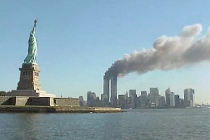 Courtesy:
Courtesy:
A decade after 9/11, the U.S. has prevented further terrorist attacks - a major achievement. But with a $1.3 trillion budget deficit, a debt downgrade, and 24 million Americans searching for jobs, the U.S. needs to attend to matters at home rather than intervening in the world's affairs.
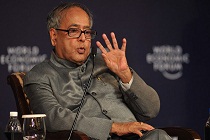 Courtesy: WorldEconomicForum/WikimediaCommons
Courtesy: WorldEconomicForum/WikimediaCommons
While the U.S. political leadership is stuck with extreme positions led by the Tea Party, India’s politicians do not seem to have a position at all. It is imperative for India’s political leadership to exercise prudent fiscal leadership to ensure that economic growth is balanced and equitable.
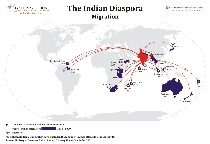 Courtesy: Gateway House
Courtesy: Gateway House
This decade records a new trend for the Indian Diaspora: as the Indian economy registers strong growth, thousands return to India amidst growing employment and investment opportunities. But does India have the ability to effectively reintegrate them into society?
Philip Oldenburg, Professor at Columbia University, comments on the fragile relationship between India and Pakistan, and also discusses his new book "India, Pakistan, and Democracy: Solving the Puzzle of Divergent Paths".
 Courtesy: Sven-steffenarndt/WikimediaCommons
Courtesy: Sven-steffenarndt/WikimediaCommons
The U.S. Justice Department is slowly but surely clamping down on Pakistani terrorist activities, as is evident not only by the recent arrest of Kashmiri propogandist Ghulam Nabi Fai but also in open claim that the ISI Security Directorate "overseas militant groups".
Robert O. Blake, U.S. Assistant Secretary of State for South and Central Asian Affairs, spoke to Manjeet Kripalani in an exclusive interview about the role of the Indian diaspora in the U.S. in fostering bilateral engagement between India and the U.S.
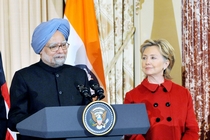 Courtesy: U.S.DepartmentofState/Flickr
Courtesy: U.S.DepartmentofState/Flickr
The upcoming strategic dialogue between India and the U.S. could prove significant: deepening people-to-people ties via the diaspora and collaboration on regional solutions could also enhance bilateral ties. Can this dialogue turn out to be a game changer in India-U.S. relations?
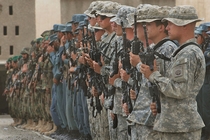 Courtesy: TheU.S.Army/Flickr
Courtesy: TheU.S.Army/Flickr
The 10-year old war in Afghanistan has reached a hazy stage as the U.S. announced a quicker withdrawal of troops, with NATO countries soon to follow. The South Asian region will undergo another makeover, hopefully opening doors for New Delhi and Islamabad.
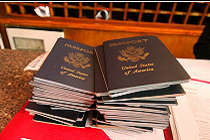 Courtesy: FourthFloor/Flickr
Courtesy: FourthFloor/Flickr
Despite their economic downturns, domestic tensions keep developed countries from embracing the revitalizing potential of foreign workers. Ambassador Neelam Deo argues that India should continue to leverage its history of diversity and capitalize on a world more open to the free flow of goods and services.